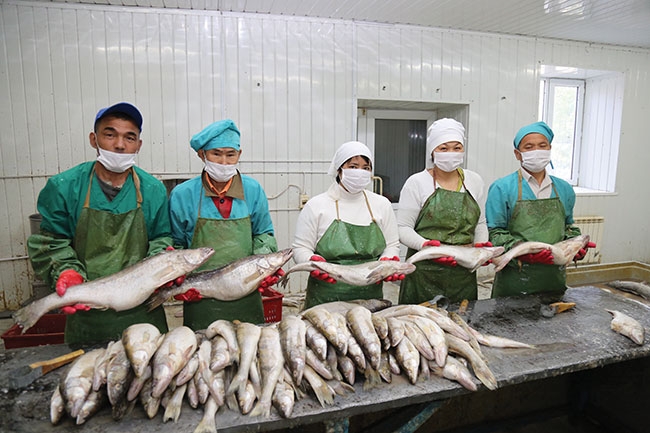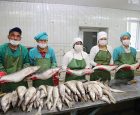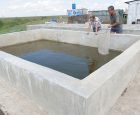
News & Views
Uzbekistan allows duty-free broodstock import
Aquaculture producers in Uzbekistan are getting some relief with the announcement by President Shavkat Mirziyoyev of tax-free broodstock import over the next two years. This measure is part of a large-scale development program for the domestic aquaculture industry and to support the fish farming sector until it is completely self-sufficient on broodstock.
March 7, 2019 By Vladislav Vorotnikov
 Uzbekizstan plans to expand the domestic aquaculture industry in the coming years. Aquaculture producers in Uzbekistan
Uzbekizstan plans to expand the domestic aquaculture industry in the coming years. Aquaculture producers in UzbekistanMirziyoyev has also temporarily cancelled import duties on equipment and feed for the aquaculture industry. Uzbekistan currently does not produce any equipment for the aquaculture industry. This measure would support the construction of new hatcheries in the country, the explanatory note to the bill said.
In 2018, seven hatcheries were built in Uzbekistan with total production capacity of 350 million units of fish fry. In 2019, 10 new hatcheries are slated to be built with total production capacity of 530 million units, the government forecasted. It is expected that Uzbekistan would become self-sufficient on broodstock by 2023.
The new hatcheries could be an impetus for the development of aquaculture in Uzbekistan. In 2018, the country produced 150,000 tonnes of fish. This year, the figure is projected to grow to 201,500 tonnes. The Uzbekistan government plans to allocate US$50 million for new aquaculture projects in the next two years, plus grant additional US$15 million per year to support the operation of existing farms.
In addition, all fish farms with actual production above 50 tonnes per year would be exempted from all taxes and fees for three years. The ultimate goal is to establish a complete aquaculture industry in the country, with hatcheries, fish farms and fish processing capabilities, the national government said in a statement.
In 2018, the Uzbekistan government said five new hatcheries are slated to be built in the next three years through joint ventures between Uzbekistan companies and foreign investors, including from the European Union.
Print this page
Advertisement
- South Dakota harbours new shrimp production site
- Making the business case for international aquaculture certification







